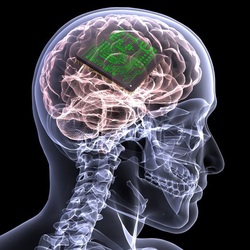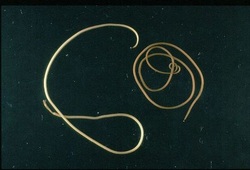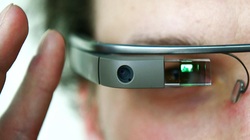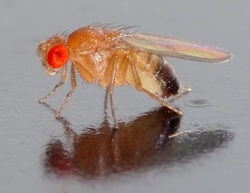|
Scottish authorities say eight dead in police helicopter crash; Obama administration says health care website fix on track; Egypt panel begins vote on draft constitution; Obama shops at Washington bookstore.  "God is our refuge and strength, a very present help in trouble" (Psa. 46:1). The Hebrew word "matsa," which is translated "very present," is often translated "to find out." It is used in Genesis 2:20 when no help meet could be found for Adam. Though the entire creation was considered, no help meet could be found. The dove that was sent out by Noah "found [matsa] no rest." The Lord said, "If I find [matsa] in Sodom fifty righteous..." (Gen. 18:26). The term speaks of a diligent search. Likewise, in time of trouble, the Lord is there with all of His compassionate Being, knowing everything about the situation, and not only knowing but helping. (Friday Church News Notes, November 22, 2013, www.wayoflife.org [email protected], 866-295-4143) Shoppers race for bargains on Black Friday; Obama meets immigration protesters on National Mall; White House Christmas Tree arrives at White House; Stocks mixed in holiday-shortened session.  "Over the next decade, new implantable technologies will fundamentally alter the social landscape. We are fast approaching a milestone in the eons-long relationship between human beings and their technology. Families once gathered around the radio like it was a warm fireplace. Then boom boxes leapt onto our shoulders. The Sony Walkman climbed into our pockets and sank its black foam tentacles into our ears. The newest tools are creeping still closer: They will soon come inside and make themselves at home under our skin--some already have. ... neural implants are ... rapidly maturing, promising to provide mental augmentation rather than physical. Neural implants, also called brain implants, are medical devices designed to be placed under the skull, on the surface of the brain. Often as small as an aspirin, implants use thin metal electrodes to 'listen' to brain activity and in some cases to stimulate activity in the brain. Attuned to the activity between neurons, a neural implant can essentially 'listen' to your brain activity and then 'talk' directly to your brain. If that prospect makes you queasy, you may be surprised to learn that the installation of a neural implant is relatively simple and fast. Under anesthesia, an incision is made in the scalp, a hole is drilled in the skull, and the device is placed on the surface of the brain. Diagnostic communication with the device can take place wirelessly. When it is not an outpatient procedure, patients typically require only an overnight stay at the hospital. ... In the future, it will be feasible for an implant to recognize almost anything. For instance, it could detect inattention. In response, the implant could stimulate the brain toward a state of focused attention." ("Bionic Brains and Beyond," Wall Street Journal, June 1, 2012)  1 Corinthians 8:2 “And if any man think that he knoweth any thing, he knoweth nothing yet as he ought to know.” According to evolutionists, the early family of mammals called Diatomyidae has been extinct for eleven million years. Of course, as creationists, we do not accept this dating. This Diatomyidae family included rat-like creatures with long skulls, a furry tail and rounded ears. Then, in 1996, a wildlife-survey team bought some strange looking animals in a meat market in Laos. This led to the discovery of living Laotian rock rats. These animals were placed into a family that includes porcupines and guinea pigs. Others argued that it belonged to a new family. The debate sparked a more detailed look at its DNA and bone structure by researchers in five countries. The results ruled out any possibility that the rats were related to guinea pigs. But the rock rat’s characteristic long skull, furred tail and round ears seemed to settle the matter. The Diatomyidae are not extinct, and the Laotian rock rat is indeed a member of this family. This discovery of thought-to-be extinct families happens frequently enough that such families are called Lazarus taxon or, more popularly, “living fossils.” So, when evolutionists proclaim that this or that creature or family has been extinct for millions of years, it takes only one living specimen to disprove it. Furthermore, many creatures do not appear in the recent fossil record, and this puts the entire interpretation into question. Notes: Science News, 4/28/07, p. 260, S. Milius, “Living Fossil.” Photo: Guinea pigs. The Laotian rock rat is considered to be in the same family. Courtesy of Mike Russell. Licensed under the Creative Commons Attribution 3.0 Unported license. Creation Moments, Inc., P.O. Box 839, Foley, MN 56329 www.creationmoments.com President Obama thanks military families on Thanksgiving; Ind. tornado victims receive Thanksgiving Day meals; Retailers open early for holiday shopping; Despite windy weather, NYC parade goes on. Iran announces nuclear plans; US offers to destroy Syrian chemical weapons; Snow socks Indiana, Michigan; Police chief shocked.  "Last week, engineers sniffing around the programming code for Google Glass found hidden examples of ways that people might interact with the wearable computers without having to say a word. Among them, a user could nod to turn the glasses on or off. A single wink might tell the glasses to take a picture. But don't expect these gestures to be necessary for long. Soon, we might interact with our smartphones and computers simply by using our minds. In a couple of years, we could be turning on the lights at home just by thinking about it, or sending an e-mail from our smartphone without even pulling the device from our pocket. ... Researchers in Samsung's Emerging Technology Lab are testing tablets that can be controlled by your brain, using a cap that resembles a ski hat studded with monitoring electrodes, the MIT Technology Review , the science and technology journal of the Massachusetts Institute of Technology, reported this month. The technology, often called a brain computer interface, was conceived to enable people with paralysis and other disabilities to interact with computers or control robotic arms, all by simply thinking about such actions. Before long, these technologies could well be in consumer electronics, too. Some crude brain-reading products already exist, letting people play easy games or move a mouse around a screen. NeuroSky, a company based in San Jose, Calif., recently released a Bluetooth-enabled headset that can monitor slight changes in brain waves and allow people to play concentration-based games on computers and smartphones. ... But the products commercially available today will soon look archaic. 'The current brain technologies are like trying to listen to a conversation in a football stadium from a blimp,' said John Donoghue, a neuroscientist and director of the Brown Institute for Brain Science. 'To really be able to understand what is going on with the brain today you need to surgically implant an array of sensors into the brain.' In other words, to gain access to the brain, for now you still need a chip in your head. Last year, a project called BrainGate pioneered by Dr. Donoghue, enabled two people with full paralysis to use a robotic arm with a computer responding to their brain activity." ("Brain Computer Interfaces Move Closer to Mainstream," New York Times, April 28, 2013)  Job 38:41 “Who provideth for the raven his food? when his young ones cry unto God, they wander for lack of meat.” A parasitic worm that matures on land but must breed under the water has some remarkable abilities to make this difficult trick possible. The worm grows to maturity on dry land but must return to a body of water to find a mate and breed. It grows inside insects like crickets. The insects it infests are typically not aquatic, making this problem number one. When breeding time comes, the worm causes the insect to move in such an uncontrolled manner that it eventually ends up in the water. Once in the water, it takes the worm about 10 minutes to escape from the insect. However, an insect struggling on the surface of the water is very attractive to a hungry fish. This is problem number two. But if the worm can’t wriggle free of the insect before it is eaten, the worm has more abilities to put into play. The worm inside an eaten insect continues to wriggle until it finally escapes through the fish’s mouth or gills. Scientists studying the worm reported observing six escapes each from frogs and perch and more than 20 escapes from trout. God has marvelously provided for this little worm. But then, this is easy for Him, considering He has provided us with escape from sin, death and Satan through the innocent death of His Son, Jesus Christ. Notes: Science News, 4/22/06, p. 252, “Worm Can Crawl Out of Predator.” Photo: Horsehair worms, also known as Gordian worms because they often tie themselves in knots. Courtesy of Bildspende von D. Andreas Schmidt-Rhaesa. Licensed under the Creative Commons Attribution-Share Alike 3.0 Unported license. Creation Moments, Inc., P.O. Box 839, Foley, MN 56329 www.creationmoments.com Travel troubles for Thanksgiving, Dramatic pictures of a burning car rescue, President Obama pardons the National Turkey, Prince William joins Jon Bon Jovi and Taylor Swift in the chorus. Storm hits east ahead of Thanksgiving; Mom, Stepdad accused of imprisoning three girls; Gas prices down; Bugs on the menu.  "Google has a plan. Eventually it wants to get into your brain. 'When you think about something and don't really know much about it, you will automatically get information,' Google CEO Larry Page said in Steven Levy's book, In the Plex: How Google Thinks, Works and Shapes Our Lives. 'Eventually you'll have an implant, where if you think about a fact, it will just tell you the answer.' Google is a long way from inhabiting your brain, but the company is building wearable computers and investing heavily in artificial intelligence development to move closer to the brain. Currently, Google Glass is expensive, geeky, and forces you to look up and to the right. But it can make what your smartphone can do more hands-free. With Google Now, the company has a good idea of what comes out of your brain if you are a user of its products. It can tell you about your next appointment and how long it will take to get there, but the digital assistant can't book your family vacation. But Google has big plans for the two products, which are core to Page's long-term goal to automatically and instantly send people information as they are thinking about something. ... Google's high-profile promotion of Glass, including a spread in Vogue magazine, is paving the way for a transition from handheld to head-mounted device, which will eventually transform how humans interface with computers and the cloud. Making smart glasses isn't Google's primary goal, however. Glass is a vehicle for its software platform, turning the contextual data that it captures for each user, via 100 billion search queries per month as well as from more than half a billion e-mail and map users, into supersmart digital assistants that are as beloved as a favorite pet and as essential as food." ("What Google Glass aspires to be," CNet News, Aug. 30, 2013)  One day old mouse pups One day old mouse pups Psalm 40:3 “And he hath put a new song in my mouth, even praise unto our God: many shall see it, and fear, and shall trust in the LORD.” Birds do it. Whales do it. Now, it appears that male mice do it. They all sing! Scientists have long known that mice produce ultrasound. Their pitch is about two octaves above what we can hear. For example, when mouse pups lose track of mom, they begin to cry so that mom can find them.Researchers carried out investigations to see whether there is any structure to the sounds that adult mice make. They did this by recording the vocalizations of 45 male mice. Then they slowed down the recordings to study them. The researchers found distinct syllables at about ten syllables per second. In addition, their “voices” also rise and fall in pitch at varying rates. The researchers then found that certain syllables were repeated, creating phrasing sequences that sound very much like music. The researchers compare the mouse vocalizations to the songs sung by whales and birds. While other scientists recognize that the mouse sounds are not random, they question whether they should be called “song”. We know that music is a gift from God. It appears that God has been generous with His gift of music and just possibly has even extended this to the animal kingdom. However, only we humans have the privilege of praising Him with words and music for His gift of salvation through His Son, Jesus Christ. Notes: Science News, 11/5/05, p. 293, B. Harder “Beyond Falsetto.” Creation Moments, Inc., P.O. Box 839, Foley, MN 56329 www.creationmoments.com Weather disrupts holiday travel plans; President Obama thanks the entertainment industry; Toy recalls down, but dangers remain; Sinkhole swallows up pond and trees in Bosnian village. Storm heads east; Senators address Iran sanctions; Seven shot in Oakland; North Korean ski resort.  "Worldwide, 100,000 people have electrical implants in their brains to treat the involuntary movements associated with Parkinson's disease, and scientists are experimenting with the technique for depression and other disorders. But today's so-called deep brain stimulation does not monitor its own effectiveness, partly because complex ailments like depression do not have defined biological signatures. The federal Defense Advanced Research Projects Agency, known as DARPA, announced Thursday that it intended to spend more than $70 million over five years to jump to the next level of brain implants, either by improving deep brain stimulation or by developing new technology. Justin Sanchez, DARPA program manager, said that for scientists now, the goal is improving the technology. 'There is no technology that can acquire signals that can tell them precisely what is going on with the brain,' he said. 'DARPA is trying to change the game on how we approach these kinds of problems. We're going to learn a tremendous amount about how the brain works.' The new program, called Systems-Based Neurotechnology and Understanding for the Treatment of Neuropsychological Illnesses, is part of an Obama administration brain initiative that is intended to promote innovative basic neuroscience. Participants in the initiative include DARPA, the National Institutes of Health, and the National Science Foundation." ("Pentagon agency to spend $70m on brain implant research," Boston Globe, Oct. 25, 2013)  Male fruit fly (Drosophila melanogaster) Male fruit fly (Drosophila melanogaster) Psalm 4:1b “Hear me when I call, O God of my righteousness: thou hast enlarged me when I was in distress; have mercy upon me, and hear my prayer.” Insects offer some novel designs. For example, they can have ears on their stomachs, wings or legs. Now, scientists at the University of Zurich in Switzerland have discovered an even more novel arrangement in the fruit fly. Scientists have been aware for many years that fruit flies can respond to sound. Sound plays an important part in their mating rituals. However, scientists were unsure just how the fruit fly’s hearing worked. They also knew that their antennae, known singularly as arista, had something to do with the way the fruit fly can hear sound. Because an arista is so small, only 300 microns long, scientists have until recently lacked the ability to take the fine measurements necessary to find out what is really going on. Now, all that has been overcome, and we learn that the base of the arista, which also senses smells, actually turns each arista toward the incoming sound. In short, the fruit fly actually rotates its nose so that it can hear better. Researchers have since found a similar arrangement in related flies. They suspect that such an arrangement will be found in several related species. As amazing as this arrangement is, God’s greatest wisdom is seen in His plan of salvation. Through His Son, Jesus Christ, He has gained the victory over sin, death and Satan for mankind. Notes: Science News, 6/23/01, p. 391, S. Milius, “Fruit Flies Hear by Spinning Their Noses.” Photo: Courtesy of André Karwath. Licensed under the Creative Commons Attribution-Share Alike 2.5 Generic license. Creation Moments, Inc., P.O. Box 839, Foley, MN 56329 www.creationmoments.com School officials charged in Steubenville rape case; Ukraine protests; Syria conference date announced; Nominees for "Toy of the Year" revealed. Big storm ahead of Thanksgiving; Obama praises Iran deal; Sandy Hook report due out; Huge protests in Thailand.  Molecular structure of alphalactalbumin Molecular structure of alphalactalbumin Jeremiah 32:22 “And hast given them this land, which thou didst swear to their fathers to give them, a land flowing with milk and honey....” While many people recognize the virtues of feeding their infants human breast milk, science is still learning its amazing secrets. Although cow’s milk contains many substances found in human milk, it does not contain certain very specific substances necessary to protect the infant. Human milk not only helps protect the infant’s digestive system by discouraging bad bacteria, it also introduces and encourages good bacteria. In fact, some of the good bacteria that protect the infant are found in no other place on Earth. Oligosaccharides in milk kill bad bacteria in a way in which the bad bacteria can never develop immunity. Lactoferrin in human milk can suppress inflammation. It also boosts the immune system and kills viruses, bad bacteria and fungi. Not only does the mother’s milk pass mom’s immunities on to the infant, the milk’s oligosaccharides give infants immunity to germs the mother has never even encountered. The protein alphalactalbumin in an acid environment such as the digestive tract can even reduce warts and kill cancer cells. So far, alphalactalbumin has been shown to effectively kill forty different kinds of cancer cells. Use of this protein in preliminary clinical trials to treat bladder cancer has been promising. While God has given us so many good things, we are still only discovering them. But the greatest of His gifts is salvation through His Son, Jesus Christ. Notes: Science News, 12/9/06, pp. 376-378, Julie J. Rehmeyer, “Milk Therapy.” Photo: Courtesy of Emw. Licensed under the Creative Commons Attribution-Share Alike 3.0 Unported license. Creation Moments, Inc., P.O. Box 839, Foley, MN 56329 www.creationmoments.com California Coalition Collects Over Half a Million Signatures in Effort to Overturn "Bathroom Bill"11/25/2013
 "A coalition comprised of parents, students, churches and other non-profit organizations has submitted over a half a million signatures to California election officials in an effort to place the state's 'Bathroom Bill' on the ballot. As previously reported, this past August, Governor Jerry Brown signed AB 1266 into law--a bill that allows boys who identify as girls to use girls' bathrooms at school, and vice versa. 'This bill would require that a pupil be permitted to participate in sex-segregated school programs and activities, including athletic teams and competitions, and use facilities consistent with his or her gender identity, irrespective of the gender listed on the pupil's records,' the legislation outlines. ... But a number of pro-family groups have staunchly insisted that the new law will have disastrous ramifications, and many have banded together to help overturn the statute. The Privacy For All Students (PFAS) coalition is the result of the collective concerns of Christians and others across the state. On Sunday, the group announced that it had submitted over 620,000 signatures to election officials in hopes of qualifying for a referendum that would give voters a chance to overturn the state's Bathroom Bill. 'We are grateful to the thousands of volunteers who have worked tirelessly in churches and neighborhoods across California,' said Gina Gleason of Faith & Public Policy, the referendum proponent. "Many people said we had no chance to collect over half a million signatures in just 90 days, but we have proven them wrong by gathering over 115,000 more signatures than the minimum needed.' 'As far as we are aware, this is the largest number of volunteer signatures ever submitted in a California referendum campaign,' added Karen England of Capitol Resources Institute, a member of the PFAS executive committee. 'It shows the degree of opposition that exists to opening the most vulnerable areas of public schools to the opposite sex.'" ("California Coalition," Christian News Network, Nov. 12, 2013) Iran agress to a temporary freeze of its nuclear program; Netanyahu criticizes the deal; Bones of St. Peter presented at the Vatican; Prince Harry walks to the South Pole.  "Australia's cabinet has decided it will reject new contributions or taxes related to climate change at this week's annual United Nations global summit on climate change in Warsaw, calling the measures 'socialism masquerading as environmentalism.' According to The Australian, the document that was agreed upon declares that Australia "will not sign up to any new agreement that involves spending money or levying taxes" on climate change matters. It 'rules out Australia playing any role in a wealth transfer from rich countries to developing nations to pay them to decrease their carbon emissions.' Australia also plans to repeal its carbon tax as it toughens its stance against the climate change agenda." (Brietbart, Nov. 11, 2013) Hard bargaining in Geneva on Iran nuclear deal; Third section of roof collapses at Latvian supermarket; Sirhan Sirhan transferred on 50th anniversary of JFK assassination; Willie Nelson suspends tour. |
Archives
February 2020
|
Ads do not imply endorsement | Policy/Terms of Service | About Us | Contact Us | © Life Work Academy, Inc.
 RSS Feed
RSS Feed

